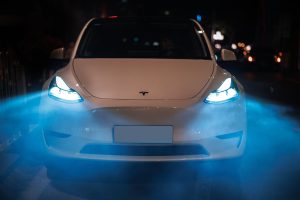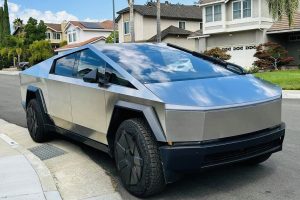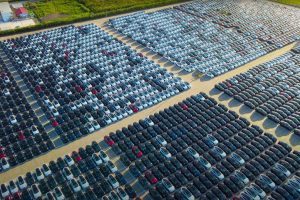- 🚗 Tesla removed two older Master Plan write-ups from its blog, with no clear reason provided.
- 🔄 The removal coincides with a redesign of the Tesla blog page.
- 📜 Elon Musk authored the removed Master Plans, detailing Tesla’s strategy for sustainability and innovation.
- ⚡ The first plan outlined the progression from luxury cars to affordable electric vehicles and renewable energy products.
- 🔋 The second plan included grid-scale battery storage, expansion of the EV product line, and self-driving technology.
- 📈 The earliest blog update now visible dates back to 2019, suggesting the exclusions might be unintentional.
- 🤖 Elon Musk hinted at a forthcoming fourth Master Plan, possibly focused on AI and self-driving developments.
In recent weeks, Tesla has made headlines not just for its innovative products but for quietly removing two significant write-ups from its blog. These removed pieces, authored by Elon Musk, were none other than Tesla’s first and second Master Plans — documents that mapped out the company’s strategic vision for sustainability and technological advancement. As we navigate through this intriguing development, we aim to understand the possible reasons for this removal, revisit the essence of these Master Plans, and ponder the upcoming innovations Musk has teased.
The Quiet Removal: Redesign Oversight or Strategic Shift?
Tesla’s decision to remove the previous Master Plans from its blog page without any formal announcement has left enthusiasts speculating. This removal coincided with a redesign of the Tesla blog page, which fuels the curiosity on whether this was an oversight or an intentional move. With the latest visible blog post now dating back to 2019, it raises questions about the motivations behind this digital cleanup.
Revisiting Tesla’s Master Plan 1
The Genesis of a Bold Vision
Published in 2006, the first Master Plan laid the foundational vision for Tesla. It was simple yet revolutionary:
- Build a sports car: Launch the high-priced, low-volume Roadster.
- Use profits to fund an affordable car: Develop the Model S and Model X.
- Use profits to produce an even more affordable car: Introduce the Model 3 and Model Y.
- Provide zero emission power solutions: Expand into renewable energy products.
This strategic rollout not only depicted the transition from luxury to mainstream electric vehicles (EVs) but also prepared the ground for Tesla’s foray into renewable energy.
Tesla’s Master Plan Part Deux: Expanding Horizons
Fast forward a decade to 2016, Tesla introduced its second Master Plan. This blueprint charted a more expansive vision:
- Solar and battery innovation: Launch solar roofs with integrated battery storage.
- Vehicle lineup expansion: Address all major segments in electric vehicles.
- Self-driving technology: Achieve 10x safer autonomy than manual driving.
- Leveraging autonomy for revenue: Enable car owners to make money through self-driving capabilities.
The second plan was ambitious, focusing on creating a self-sufficient energy ecosystem and pushing boundaries in automation and vehicle technology.
Looking Ahead: Speculations of Master Plan 4
Elon Musk has teased the release of a fourth Master Plan, hinting at an “epic” document that many speculate will delve into developments around Artificial Intelligence (AI) and Full Self-Driving (FSD) technology. This plan could potentially expand on topics like robotaxi services and the Optimus humanoid robot, reflecting Tesla’s ambitions in AI and autonomous solutions.
Conclusion: What Lies Ahead for Tesla?
The removal of the older Master Plans may be perplexing, yet it underscores Tesla’s dynamic approach to evolving its mission and image. Whether the forthcoming Master Plan will redefine the company’s trajectory or reinforce existing pathways, one thing remains clear: Tesla continues to be at the forefront of innovation and sustainable technology.
By removing older plans from public view, Tesla might be signaling a shift in how its ambitions align with future technological landscapes while retaining an aura of mystery around its strategic muscles. Observers and consumers alike eagerly await glimpses of how Tesla will tackle upcoming challenges in the realm of AI, self-driving technology, and beyond.





